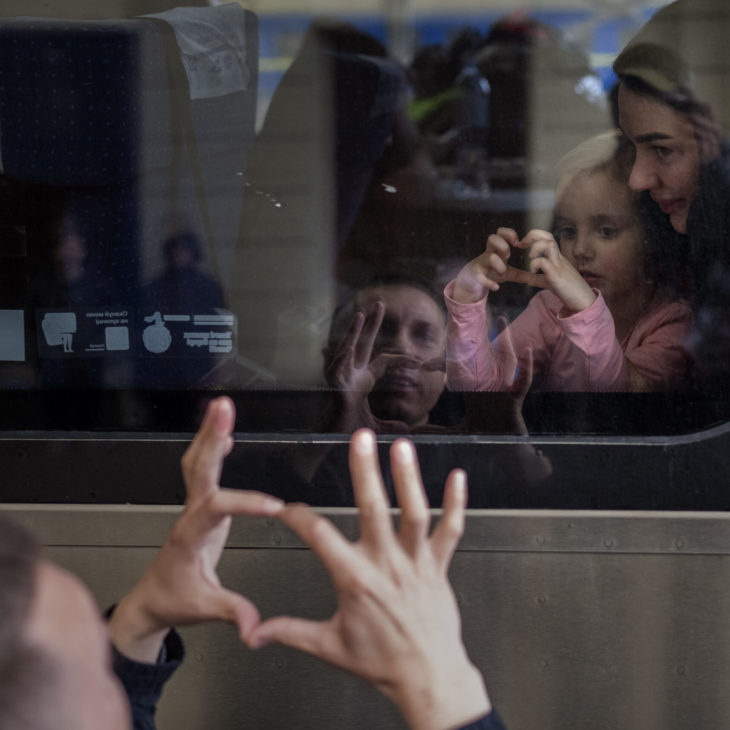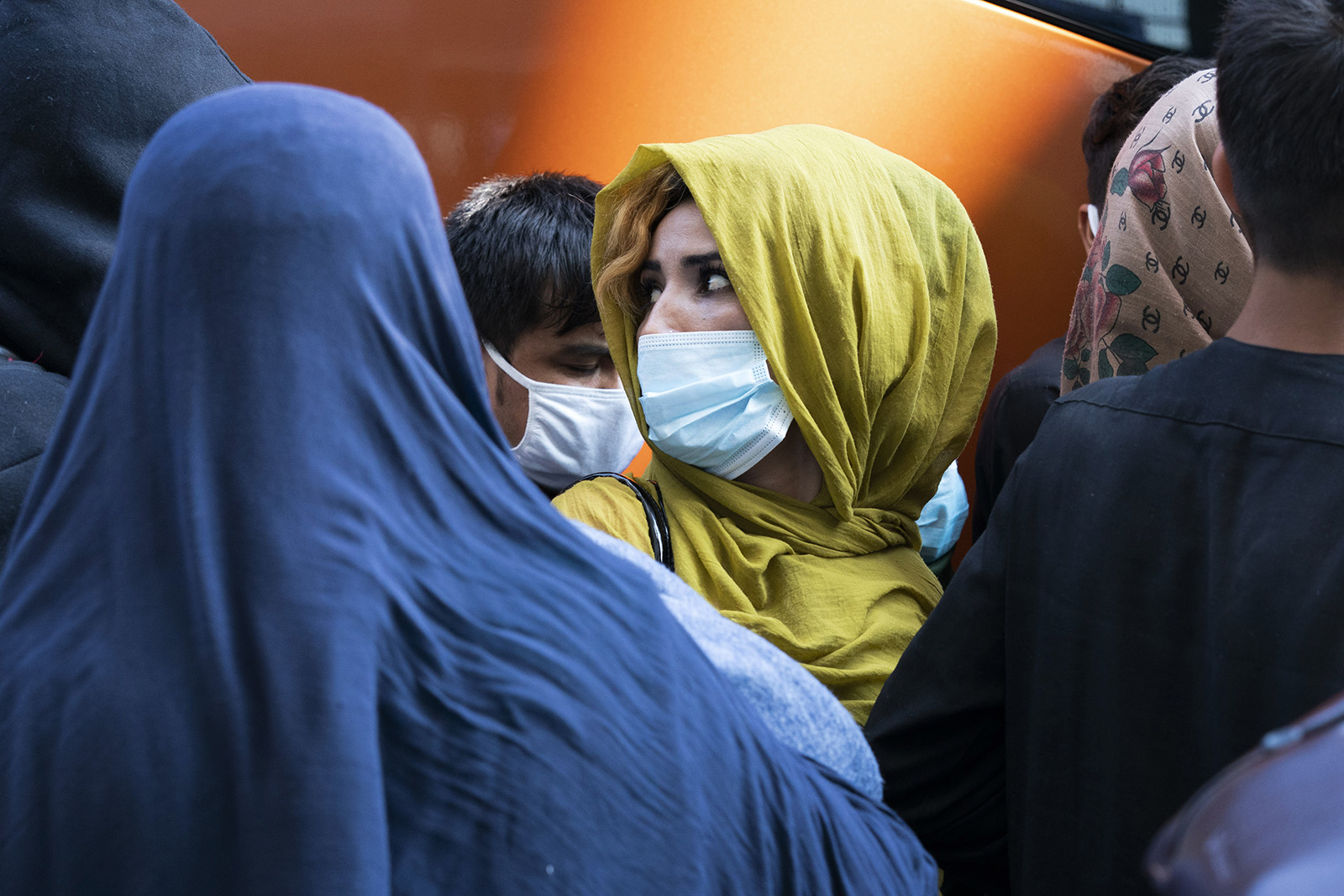Answering the Refugee Crisis as a Matter of Faith
June 23, 2022

(RNS) — As the war in Ukraine continues, sending refugees on an exodus into the West, the number of people worldwide who have been uprooted and forced from their homes by conflict and disasters has surpassed 100 million, according to the United Nations.
Faith-based agencies are among those on the front lines of these emergencies, providing practical and psychological support, both to those who remain displaced within their own countries and those who flee across borders into neighboring nations.
Faced with the unprecedented refugee crisis, our three organizations — Islamic Relief Worldwide, the Lutheran World Federation and HIAS, an international Jewish humanitarian organization that provides critical support to refugees — are strengthening their cooperation to provide a better, more coordinated and effective response. These organizations have decades of experience serving refugees and host communities in other places, especially in developing countries where the vast majority of the world’s refugees are located.
As a capstone to our partnership, and to mark World Refugee Day, the three organizations co-hosted an international conference in Geneva on June 20 and 21, with the aim of improving our understanding of the work that is being done by local faith groups around the world in implementing the Global Compact on Refugees. It also tackled the question of how to support those groups in their work.
Gillian Triggs, assistant high commissioner for protection at the Office of the U.N. High Commissioner for Refugees, opened the conference with us, and senior staff from UNHCR’s regional bureaus and gender, child protection, partnerships and peacebuilding experts co-facilitated some sessions. Their participation was vital, and we were pleased to hear concrete commitments from UNHCR to continuing this partnership, in particular to increasing their faith literacy.
The conference examined the role religion plays in displacement of populations from their homes. Differences between faith groups or within a faith group are often a major reason refugees flee, taking little with them but that faith tradition. Many rely on those faith traditions to cope with the trauma of flight and to rebuild community and their lives in exile.
Faith groups are often the first responders, and are also regularly the last responders. They are on the scene of upheavals before international groups arrive, and stay long after the funding for international agencies has run out. Given this reality, a coordinated response from people of faith is more urgent than ever.
In particular, faith groups can help integrate refugees and asylum-seekers into their new contexts using our networks, influence and moral authority to find livelihoods for the displaced and to promote understanding and fight xenophobia in the host nation. Faith groups should look to deepen their partnerships and their connections with global humanitarian and development agencies.
At the conference we lifted up some key models for such networks. Through an initiative called Symbols of Hope, the Lutheran World Federation supports member churches in African countries to provide pastoral and psychosocial care for returnees, along with skills training and livelihoods support.
An initiative by Interfaith Women in Uganda, the country that is host to the largest number of refugees in Africa, helps to develop educational tools for young refugees and members of host communities to promote coexistence and prevent conflict over scarce resources.
In response to the war in Ukraine, HIAS is expanding its Welcome Circle network of synagogues and local community groups that take on the responsibility of resettling refugees in their communities, an initiative launched to resettle evacuees from Afghanistan.

People evacuated from Kabul, Afghanistan, wait to board a bus after they arrived at Washington Dulles International Airport, in Chantilly, Virginia, on Aug. 25, 2021. (AP Photo/Jose Luis Magana)
Offering shelter and a welcome to those most in need is more than just a professional obligation for members of these religiously motivated organizations: It is a commandment written in their religious texts that continues to inspire words and actions.
“I was hungry and you gave me something to eat, I was thirsty and you gave me something to drink, I was a stranger and you invited me in,” Jesus tells his listeners in St. Matthew’s Gospel. The Torah instructs Jews 36 times to care for the stranger — far more than it commands them to observe the Sabbath or any other law — such as in the Book of Exodus: “You shall not oppress a stranger, for you know the feelings of the stranger, having yourselves been strangers in the land of Egypt.”
Similarly, the Quran calls on Muslims to be protectors and helpers to “those oppressed men, women and children who cry out ‘Lord, rescue us from this town where people are oppressors!’” Another verse reads, “If they seek help from you against persecution, it is your duty to assist them.”
This is a challenging task as we witness the scale of the crisis unfolding in Ukraine and the continued suffering of people who have fled from conflict and oppression in Syria, Afghanistan, Venezuela, Ethiopia and elsewhere. We urge all people of goodwill to pray for peace, consider volunteering and donate to refugee relief efforts.
As we reflect on the timeless questions “Who is my neighbor?” and “What can I do to help?,” we pray you will join us in your communities of faith-inspired welcome by taking action for a more empathetic, generous and open-armed policy to all refugees, no matter where they are from and what their faith is.
(Waseem Ahmad is CEO of Islamic Relief Worldwide. The Rev. Anne Burghardt is general secretary, Lutheran World Federation. Mark Hetfield is CEO of HIAS. The views expressed in this commentary do not necessarily reflect those of Religion News Service.)
Share
Related Articles
American Civic Life
American Civic Life
Higher Education
What Does Interfaith Engagement Mean from an Evangelical Perspective?



